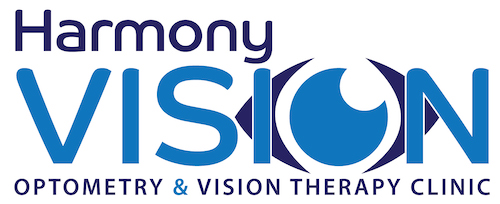Reading Glasses For Your Children
“Not Just for Old People!”
Most people associate glasses with aging eyesight, and many also mistakenly believe that wearing glasses can make their eyes weak, or dependent on them. However, glasses carefully prescribed for reading when someone is young and that been diagnosed with focusing problems can actually make life easier during study and work.
These types of vision problems aren’t detected by failing a sight test, and the symptoms may not always be as obvious as blurry vision… but can still impact on concentration.
What are the indicators for reading glasses for young people?
There are a number of symptoms that vary from something as simple as needing to re-read more often as you read, to the following:
- Headaches
- Sore or tired eyes
- Red or watery eyes
- Complaints of double vision
- Poor concentration or attention in the classroom or at work
- Covering or closing one eye while reading
- Poor comprehension
- Pulling close to the page or computer screen
- Being good at maths, but struggles with reading and/or writing
Why do these problems occur?
It is still not known why some people can’t read or concentrate without tiredness, but it is thought that the following factors may be an influence:
- Stress on the visual system – for example students now read three times the amount of textbooks as their grandparents did. The number of children with vision problems seems to increase from early primary to later school years – more research is required, but it is thought that increasing reading & computer workloads influence the development of vision problems. That is why regular check ups are important throughout school.
- Hyperopia or longsightedness
- Poor development of the fine control required in the eye muscles
General advice for reading glasses for near work (not intended as specific advice. Follow the instructions of your optometrist as it pertains to your individual needs).
- Generally the glasses should be worn for all reading and computer tasks. It’s usually easiest to wear them full-time indoors to make sure they are already on when required. “Indoors On—Outdoors Off.” If glasses happen to be on when not required they will do no harm.
- While not usually required for board work, your optometrist will prescribe the lens so that seeing the board will still be easy with the glasses on, to avoid the hassle of taking them on & off. This may be done by using a bifocal or multifocal lens. Some people may need a separate single vision lens for the computer.
- If you’re in doubt as to whether they are required for an indoor task, ask your optometrist.
- Getting used to glasses usually takes no more than 1-2 weeks. Always contact your Optometrist if you have any queries.
- At Harmony Vision, first time wearers are encouraged to have a review 6 to 8 weeks after delivery of their glasses.
How do reading glasses work?
There is still much to know. Early research suggests that in some people accommodation or focusing fatigues over-time, and there has been some indication that it might be related to micro-fluctuations.
From an optical point of view, lenses place your visual world at an optically greater distance, reduce the amount of focusing needed during near work. If you look at other muscle systems in the body, they fatigue if made to hold posture, it is reasonable to expect that this may also occur in the visual system. Using a reading lens in this senses is similar to using an ergonomic work environment to reduce fatigue in other muscles systems.
Will glasses weaken the eyes?
There is no evidence that children who get reading glasses need to keep getting stronger and stronger glasses. There are some specific cases where this might occur when managing more complex cases like eye turns, but that is a different case to what is being described here.
It is important not to confuse reading glasses with conditions that are age-related or with refractive problems like astigmatism or shortsightedness – these may get worse irrespective of glasses.
How much a person will need their glasses throughout their working or study career may depend on the type of work they are doing. For example, some people find that they can read books, stories or magazines they enjoy without glasses, but find they need them glasses for prolonged near tasks, more detailed work or when reading to study something new.
How you know if they are needed?
Primarily this is first determined because the person is experiencing symptoms related to near work. This might be something as obvious as blur, frontal headaches or eye strain. Sometimes it can be more performance related, like feeling sleepy with reading, losing place with reading or losing concentration. It is important that the optometrist does the necessary tests that cover the functional aspects of seeing and not just sight to diagnose and then determine if this is the right course of action.
